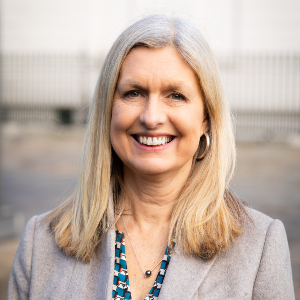
The government must fund better pay and training for adult social care staff to tackle a deepening workforce crisis that is undermining the quality of services.
That was the warning today from the Care Quality Commission in its annual state of care report for 2021-22, in which it described the health and social care systems as “gridlocked”, amid shrinking capacity and increasing unmet need for adults’ services.
This was evidenced in the fact that, according to the NHS Confederation, two in five people are not able to leave hospital when ready, in large part because of a lack of social care.
People ‘stuck in hospital for lack of social care’
“What this gridlock means for people is that they are stuck – stuck in hospital because there isn’t the social care support in place for them to leave, stuck in emergency departments waiting for a hospital bed to get the treatment they need, and stuck waiting for ambulances that don’t arrive because those same ambulances are stuck outside hospitals waiting to transfer patients,” said CQC chief executive Ian Trenholm and the regulator’s chair, Ian Dilks, in a foreword to the report.
The root of the issue was staff shortages across both sectors, particularly social care, where 165,000 posts, 11% of the total, lay vacant as of April this year, a 52% rise on the previous year. At the same time, providers’ recruitment and retention difficulties were exemplified by the fact there was a drop of 50,000 in the number of filled roles in the sector from 2020-21 to 2021-22, despite rising demand for care.
This was leading to reductions in the number of home care hours providers could deliver and a drop in care home capacity, with operators holding beds empty because of a lack of workers to staff them. As well as causing gridlock in the NHS, the CQC highlighted the rising levels of unmet need for social care, with Association of Directors of Adult Social Services (ADASS) figures showing 540,000 were waiting for a care assessment, care package, direct payment or review as of April this year, up 37% in six months.
Related articles
The CQC welcomed the Department of Health and Social Care’s (DHSC) injection of £500m into the sector this winter to boost its capacity to respond to hospital discharges and tackle workforce shortages.
Warning over ‘short-term sticking plasters’
But, in an echo of comments made by sector leaders, it called for “investment in long-term solutions rather than short-term sticking plasters”.
Specifically, it said the DHSC should resource integrated care systems (ICSs) – local partnerships of health and social care leaders – to deliver “a properly funded workforce plan that recognises the adult social care workforce crisis as a national issue and offers staff better pay, rewards and training linked to career progression”.
The DHSC is also providing £500m from 2022-25 to fund career development and wellbeing support for adult care staff; however, provider body Care England has calculated this as being worth just 5.7p per hour per social care employee. The government has also made no provision to increase pay, aside from annual increases in the national living wage, saying this was a matter for employers.
The CQC found that providers were increasing their pay bill to combat their recruitment problems – with non-specialist care homes seeing staff costs rise as a percentage of turnover by 3.8 percentage points from September 2021 to March 2022 – but this was reducing profitability.
‘Step change’ needed including improved pay
And despite this, the sector was continuing to lose staff to higher paying industries with less stressful conditions, or to the NHS, while home care providers said their efforts to raise pay were being compromised by the significantly elevated fuel costs their staff were facing.

Photo: Kate Terroni/CQC
CQC chief inspector of adult social care and integrated care and interim chief operating officer Kate Terroni said that without a “real step change in thinking about how to attract and retain staff”, involving improved pay and development, “people will be at increased risk of harm”.
She said its work over 2021-22, including co-ordinated inspections of urgent and emergency care across 10 ICSs, had shown “how a lack of investment in one part of the system has consequences for the whole, and the impact this has on whether people get good care”.
In response to the report, a DHSC spokesperson said the CQC report had identified the same priorities as the department in its plan for patients issued last month, to “address ambulance pressures, bust the backlog, support care and discharge from hospital and improve access to doctors and dentists”.
‘Tens of thousands’ of international recruits
On the social care workforce, the DHSC pointed to the £500m in hospital discharge funding and the fact that tens of thousands of extra staff had joined the workforce from overseas since care workers were added to the government’s shortage occupation list at the start of the year. This was being boosted by £15m to support international recruitment, which would be followed by a domestic recruitment campaign.
However, as previously, the department stressed that care workers’ pay and conditions were set by employers, independently of government, and that local authorities, in their fee rates for providers, should take account of wage costs.
But its analysis was rejected by council and provider leaders. Martin Green, the chief executive of provider umbrella body Care England, said the CQC report was the “latest in a long line of publications which present the need for immediate government action to help tackle the ongoing workforce pressures”.

Sarah McClinton, ADASS president from 2022-23
‘People going without care and carers breaking down’
For ADASS, president Sarah McClinton said the report underlined the need for the new prime minister to prioritise social care, warning: “Ahead of winter, people are going without care and support, staff are leaving, and carers are breaking down. Less money simply means less care and support, more unfulfilled lives, fewer staff, more of us having no choice but to give up work to care, and more of us having restricted access to healthcare.”
The report comes amid reports that the government is considering delaying by a year the cap on care costs and associated social care reforms, having already scrapped the health and social care levy set up to fund them and action to tackle the NHS backlog.
In a reference to the perceived narrowness of the government’s ambitions for its reforms, McClinton added: “Reform is about more than not having to sell your home to pay for care, it is about providing more care at home, better pay for the workforce, increasing support for carers, and supporting people to recover after spending time in hospital.
“It is about something fundamentally different, not more of the same. Rather than talking about delaying reform, we should be accelerating it because improving social care will benefit us all.”
People at risk of unlawful deprivations of liberty
The CQC report also provided an update on the operation of the Deprivation of Liberty Safeguards (DoLS), in which it echoed previous concerns that some people were at risk of being unlawfully detained.
It cited the latest official figures, which showed annual DoLS caseloads reaching record levels, a growing backlog of uncompleted applications and a drop, from 24% to 20%, in the proportion completed within statutory timescales.
It said these delays left care home and hospital staff “in limbo” about their legal authority to deprive people of liberty, but the regulator also raised concerns about knowledge gaps left by workforce shortages and turnover.
“In the adult social care sector in particular, we have seen a high number of experienced registered managers leaving,” the report said. “In some local authority areas this had created a knowledge gap, with less experienced managers lacking an understanding about the need to apply.”
It said its monitoring activities had identified increases in restrictive practices where DoLS had not been applied for or authorised.
BIA shortages
Knowledge gaps were also a factor in DoLS applications not being made in mental health hospitals, where staff had difficulty understanding the interface between DoLS and the Mental Health Act 1983. Some had the misconception that people who were happy to be on a ward could be classed as informal patients, without staff considering if they had capacity to consent and therefore whether a DoLS application was necessary.
Delays had also been fuelled in some areas by the unavailability of best interests assessors – whose role is to co-ordinate DoLS assessments and carry out the best interests assessment – with BIAs in one mental health trust who had been redeployed during the pandemic not having returned.
However, the CQC also said it had been told that BIAs were working around capacity issues by making use of remote assessments where necessary.




 Family help: one local authority’s experience of the model
Family help: one local authority’s experience of the model  ‘I spent the first three months listening’: how supportive leadership can transform children’s services
‘I spent the first three months listening’: how supportive leadership can transform children’s services  How senior leaders in one authority maintain a culture of excellence
How senior leaders in one authority maintain a culture of excellence  How staff support ensures fantastic outcomes for children and families
How staff support ensures fantastic outcomes for children and families  Workforce Insights – showcasing a selection of the sector’s top recruiters
Workforce Insights – showcasing a selection of the sector’s top recruiters 

 Facebook
Facebook X
X LinkedIn
LinkedIn Instagram
Instagram
Funny that the CQC would say this when their own inspectors are paid very little for what is such an important and stressful job. They are paid much less than social workers, for example, and haven’t had a pay rise in a long time.
Returning to the subject at hand, care workers are paid very poorly and there is a chronic shortage of them. When trained by care agencies many of them go to the NHS and Adult Social Care because the pay and conditions are far better, working in roles as support workers or rehab assistants, for example. The only solution to this is to increase their pay to compete with the likes of Amazon, and to give them the same terms and conditions as NHS and Adult Social Care equivalents,
Lastly, what is not mentioned in all of this is the ongoing shortage of local authority social workers, many of whom leave to go work for an agency (for obvious reasons) or to the NHS where they don’t have to battle against funding panels, and where funnily enough they get paid a lot more and have better terms and conditions. Less local authority social workers means less people to do assessments and support planning.
Someone really needs to listen to those of us who work on the front line, because until that happens nothing will ever change.
Having worked in the care sector in many different fields for over 30 years, I have currently had no other choice than to leave a wonderful company and set up for myself.
If there is such a huge shortage of carers, like myself why not make it easier for us to gain access to our local councils and communities? Maybe we could have a register where we could register our services and which areas we have availability.
I really do feel that lots of carers will be either doing what I have done or switching careers to better paid jobs.
Surely it would make more sense to help people like myself bridge the gaps? I feel that a full overhaul is needed as things are only going to worsen.
I think the NHS and Council need to abolish agencies because it is destroying the system from the inside out. If they invested the money into paying their staff correctly they wouldn’t need to work for an agency that charges more than double their pay. We need to cut out the middlemen because it has caused so much corruption and destroyed the sector.